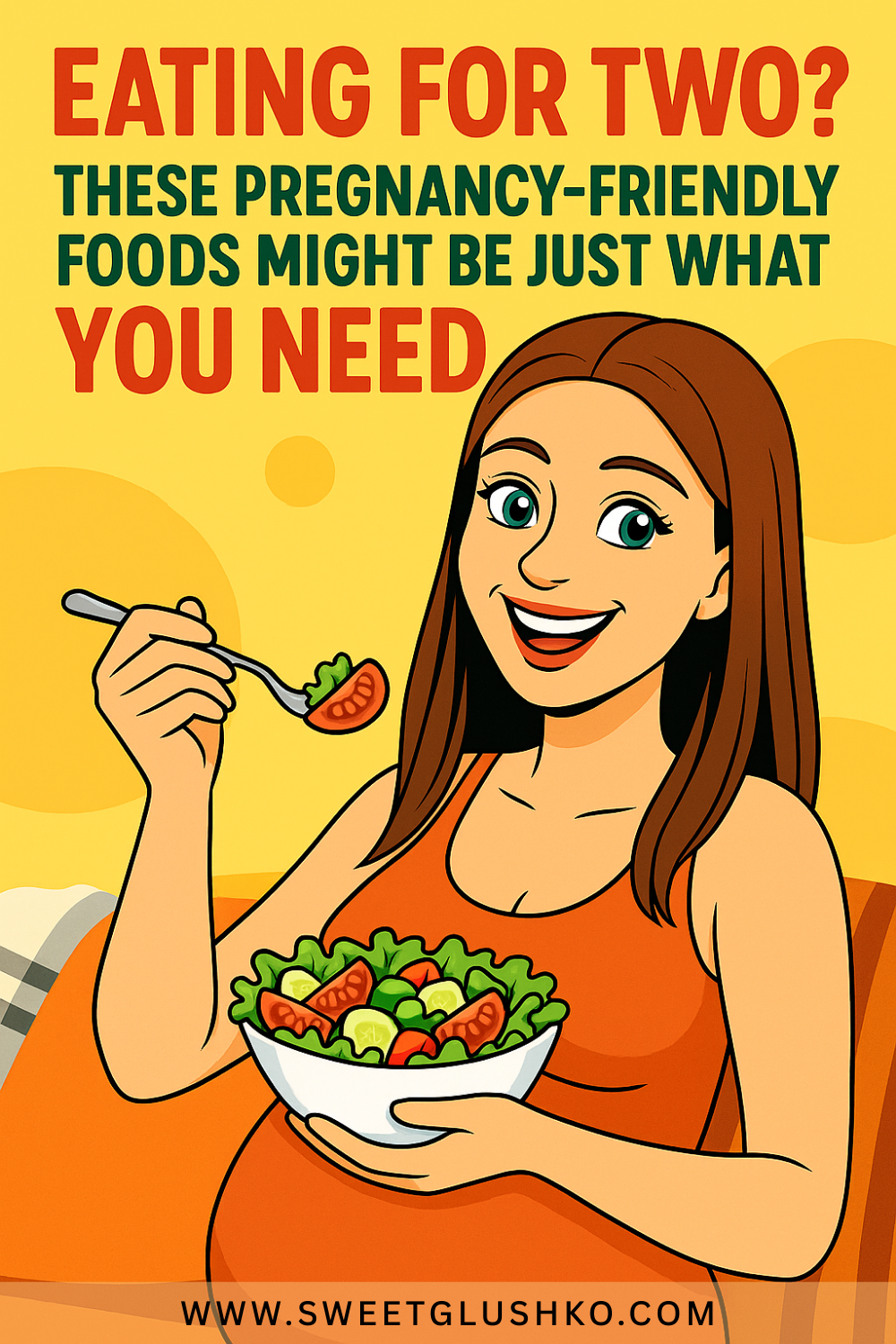Healthy foods during pregnancy play a key role in supporting both the mother’s well-being and the baby’s development. With so much advice coming from every direction, it’s easy for expecting mothers to feel confused about what to eat. That’s why it’s important to follow guidance from your healthcare provider and focus on what works best for your body. Additionally, including a variety of nutrient-rich foods can help meet the growing demands of pregnancy. Up ahead, explore some of the most beneficial and balanced food choices to keep you energized and help your baby grow strong and healthy.

What Kind Of Food Should A Pregnant Woman Eat?
A pregnant woman should follow a balanced and nutritious diet that includes foods from the basic food groups. According to the USDA (the United States Department of Agriculture) and the US dietary guidelines, you should have items from the following foods groups every day
Healthy Foods During Pregnancy: Top Picks for Nourishing You and Your Baby
Maintaining a nutritious and balanced diet is one of the most important steps you can take for a healthy pregnancy. Not only does it support your baby’s development, but it also boosts your energy and helps manage common pregnancy symptoms. Knowing which foods to focus on can simplify your choices. Let’s explore some of the best healthy foods during pregnancy that are both delicious and beneficial.
Understanding the Pregnancy Food Groups
According to the USDA and dietary guidelines, pregnant women should include daily servings from key food groups:
- Fruits and vegetables
- Whole grains
- Lean proteins
- Dairy
- Healthy fats
Within these categories are nutrient-packed superfoods that can make a big difference in your baby’s growth and your well-being.
20 Best Healthy Foods During Pregnancy
Dairy Products
Dairy offers a rich supply of calcium, vitamin D, protein, and phosphorus—all of which support fetal bone growth and help maintain healthy birth weight.
How much to eat: 2 to 3 servings per day
Ideas: A glass of milk, yogurt bowls, or cheese in soups and casseroles
Legumes
Beans, lentils, peas, peanuts, and soybeans are excellent plant-based sources of iron, folate, and protein. These nutrients help prevent anemia and support heart health.
How much to eat: About 3 cups per week
Ideas: Add to soups, stews, salads, or blend into dips
Avocados
Avocados are packed with healthy fats, fiber, and a variety of vitamins including B, K, C, and E. They aid in brain and tissue development for your baby.
How much to eat: Half an avocado daily
Ideas: Use in guacamole, salads, toast, or baked dishes
Sweet Potatoes
Loaded with beta-carotene (converted into vitamin A), sweet potatoes help with fetal cell growth and immunity. They’re also high in fiber for digestion.
How much to eat: 1 cup daily
Ideas: Bake or boil them and drizzle with olive oil
Eggs
Eggs provide essential protein, choline, and omega-3 fats, which are vital for brain and neural development.
How much to eat: 1 egg daily
Ideas: Boiled eggs, omelets, or frittatas
Salmon
This low-mercury fish is a top source of omega-3s like DHA and EPA, crucial for your baby’s brain and vision development.
How much to eat: 8–12 ounces per week
Ideas: Grilled, baked, or poached with herbs
Lean Meat
Lean meats offer protein and iron, which help carry oxygen to your baby and support overall growth.
How much to eat: 2–3 ounces daily
Ideas: Turkey sandwiches, grilled chicken, or stir-fried beef
Fortified Breakfast Cereals
These cereals contain added nutrients like folic acid and iron, essential for pregnancy. Choose high-fiber, low-sugar varieties.
How much to eat: Depends on the brand
Ideas: Serve with milk and top with fruit and nuts
Bananas
Bananas are gentle on the stomach and provide potassium, helping combat fatigue and muscle cramps.
How much to eat: Safe to eat daily
Ideas: Add to smoothies or cereals, or eat as a snack
Cod Liver Oil
This supplement provides vitamin D, DHA, and EPA. It’s known to support bone health and may reduce the risk of preeclampsia.
How much to take: 1–2 capsules daily, if approved by your doctor
Ideas: Take in softgel form as directed
Oatmeal
Oats are loaded with complex carbs, fiber, and B vitamins. They keep you full and stabilize blood sugar.
How much to eat: ½ cup daily
Ideas: Cook with milk, add fruits, or use in pancakes and muffins
Nut Butters
Nut butters like peanut, almond, or hazelnut provide healthy fats and protein. They’re great for satiety and fetal brain development.
How much to eat: 1 tablespoon daily
Ideas: Spread on toast, dip with fruits, or blend into smoothies
Leafy Greens
Spinach, kale, and other dark greens offer folate, calcium, vitamin K, iron, and antioxidants—all critical nutrients during pregnancy.
How much to eat: 3–5 servings per day
Ideas: Add to pasta, soups, or stir-fry; use in salads or smoothies
Adding these healthy foods during pregnancy to your diet can help you stay energized, support your baby’s development, and reduce the risk of complications. Whether you’re in your first trimester or nearing your due date, the right nutrition truly makes a difference.